Field of Dreams concluded a tremendous decade of baseball movies. As well, it was the last in a string of baseball-themed films released during a span of a mere ten months. Between June 1988 and April 1989, moviegoers were treated to not one, not two, not three, but four baseball movies. In addition to Field of Dreams, that period saw the release of Ron Shelton’s Bull Durham, John Sayles’ Eight Men Out and David S. Ward’s Major League. (Arguably, a fifth movie could be lumped into that group: The Naked Gun. Though not specifically a baseball movie, the Zucker-Abrahams-Zucker comedy featured a humorous baseball sequence.) At no other time in the history of cinema have so many memorable baseball movies been released in such a short span of time.
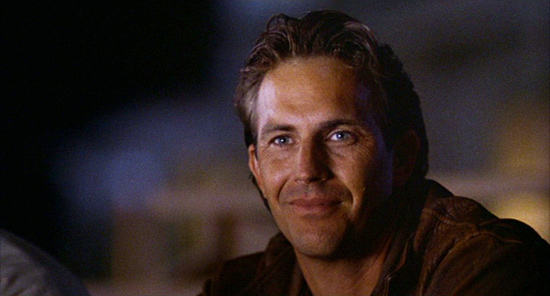
At the helm of Field of Dreams was Phil Alden Robinson, who also adapted W.P. Kinsella’s 1982 book Shoeless Joe into an Oscar- and WGA-nominated screenplay. Robinson’s other films have included In the Mood (1987), Sneakers (1992), and The Sum of All Fears (2002). He also directed an episode of the acclaimed TV mini-series Band of Brothers (2001). Taking time out from his busy schedule putting the finishing touches on The Angriest Man in Brooklyn, due out in May, Robinson kindly spoke to The Bits about Field of Dreams and its enduring appeal:
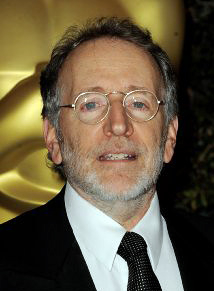 Michael Coate (The Digital Bits): It has been twenty-five years since the original release of Field of Dreams. What do you think of the film’s enduring appeal?
Michael Coate (The Digital Bits): It has been twenty-five years since the original release of Field of Dreams. What do you think of the film’s enduring appeal?
Phil Alden Robinson: It’s incredibly gratifying. When you spend a few years of your life making a movie, you always hope – but seldom completely expect – that the audience will so strongly take it to heart and hold onto it. That this happened for us is one of many reasons I feel so lucky to have been a part of it.
Coate: Right before doing Field of Dreams, Kevin Costner, of course, had starred in Bull Durham. Were you concerned about him appearing in back-to-back baseball movies?
Robinson: In those days, baseball movies were considered very uncommercial, so it never occurred to us that Kevin would do two back-to-back. Consequently, we never put him on our list of actors to go out to. But a Universal executive slipped him the script, and when we heard a few days later that he wanted to do it, we were thrilled and immediately offered it to him.
Coate: Why has Costner been particularly good in sports-themed movies?
Robinson: Kevin is really good in a wide range of movies, not just sports. He’s very skillful, has real movie-star charisma, can do drama and comedy, action and romance, takes his job seriously, and is always demanding the best of himself.
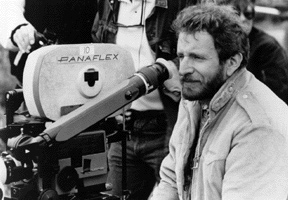 Coate: What was it about W.P. Kinsella's book that compelled you to want to make it into a movie?
Coate: What was it about W.P. Kinsella's book that compelled you to want to make it into a movie?
Robinson: The story and characters were so original and so compelling, and the story so full of surprises and beautifully imagined visual moments, that I felt certain it could be a very special movie. Alas, no studio agreed for some years, but finally Universal went for it, and I’m eternally grateful they did.
Coate: Can you recall your reaction to seeing Field of Dreams for the first time with an audience upon its release?
Robinson: It was opening night in Westwood, there was a line around the block, the theatre was jammed, anticipation was high (perhaps because the reviews that morning were so good), and perhaps most importantly, no one knew the ending yet, so it was the perfect audience. I went back to watch it with different audiences twice more on Saturday, and twice more on Sunday. I found that the visceral reaction of the audience to the movie was my real reward for all the blood, sweat and tears.
Coate: Was Field of Dreams test screened before its release? If so, what, if any, changes did you make to the film as a result of the screening(s) and audience feedback?
Robinson: Near the end of the very first test screening, we could feel that the audience was really with us, but at the very end they were bothered by something. The focus group told us they were upset that Ray didn’t tell the catcher that they were father and son. We’d left the relationship unsaid, because we thought it was perfectly obvious, but the audience didn’t feel it. So when Kevin came in to the studio for looping, we changed “Hey, you wanna have a catch?” to “Hey Dad, you wanna have a catch?” Next test screening went through the roof.
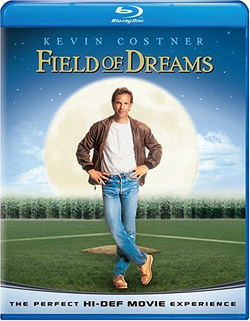 Coate: Do you think movies can be enjoyed in a home setting via VHS, DVD, Blu-ray, etc., or should they be viewed only in a movie theater with an audience?
Coate: Do you think movies can be enjoyed in a home setting via VHS, DVD, Blu-ray, etc., or should they be viewed only in a movie theater with an audience?
Robinson: Yes, and unfortunately many movies now have to be shot in ways that make them more compatible for home viewing. And I, like most everyone, wind up watching a lot of movies at home. But for me, nothing can compare to sitting in a dark theatre full of people when the lights go down, and a movie starts to envelop you so deeply that you forget where you are. It’s much harder to achieve that immersion in one’s living room, or on a computer, or (God forbid) on a mobile device.
Coate: We are currently in an era of seemingly endless sequels and reboots. Has there been any pressure put on you to remake Field of Dreams or revisit it in the form of a sequel?
Robinson: Thankfully no.
Coate: What is the legacy of Field of Dreams?
Robinson: It seems to mean a lot of different things to different people, so I think this question is really for others to answer. But here’s one (of many) reactions I cherish: we showed the film a few years ago in Hanoi, and during the Q&A after the screening, an elderly woman stood up and said (through an interpreter) “I never knew American people cared about their families the way Vietnamese people do. This film has totally changed my view of American people.” What’s better than that?
-----
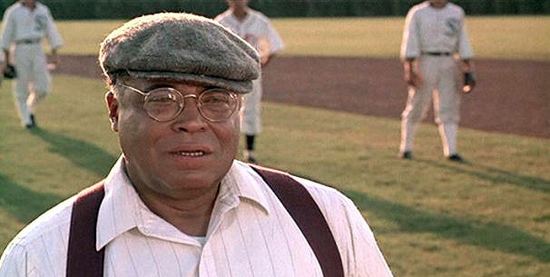
SPECIAL THANKS:
Jeff Bond, Sue Han, Phil Alden Robinson.
IMAGES:
Field of Dreams © 1989 Universal City Studios, Inc.
- Michael Coate


